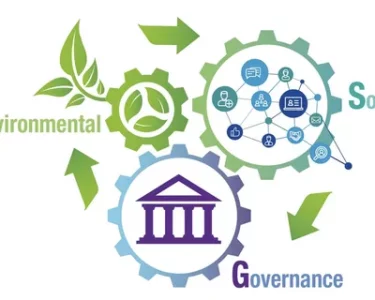Buying groceries is an essential part of our everyday lives. However, with the rising cost of living, it can be challenging to make ends meet and put food on the table. Buy now, pay later services have become increasingly popular in recent years as a way for consumers to spread out their payments over time. But are these services worth using for groceries? In this blog post, we’ll dive into the world of buy now, pay later options for grocery shopping and explore their pros and cons. Plus, we’ll introduce you to The Big Take podcast that breaks down all your options so you can make an informed decision about how to manage your grocery budget. Let’s get started!
What are buy now, pay later services?
Buy now, pay later services are a type of financing option that allows consumers to purchase goods and services upfront and make payments in installments over time. These services are becoming increasingly popular as people look for ways to manage their finances while still being able to afford the things they need.
There are different buy now, pay later options available, such as credit cards, installment plans offered by online retailers or third-party payment providers. Some of these options may charge interest on the outstanding balance which could lead you into debt if not managed carefully. Others offer zero-interest repayment terms but may come with hidden fees.
One advantage of buy now, pay later services is that they can help people who don’t have access to credit cards or other traditional forms of financing due to poor credit scores or lack of financial history. Another benefit is that some providers allow consumers to split their payments into smaller amounts over several weeks or months at no extra cost.
However, it’s important to keep in mind that these services should be used responsibly and only for necessary expenses like groceries rather than luxuries like vacations or expensive gadgets. Additionally, missed payments can result in hefty late fees and damage your credit score.
Buy now, pay later services can be helpful tools when used properly but require careful consideration before deciding whether they’re right for you.
How do buy now, pay later services work?
Buy now, pay later services have become increasingly popular in recent years. These services allow consumers to purchase goods and pay for them over an extended period of time instead of paying the full amount upfront.
To use these services, customers usually need to create an account with a buy now, pay later provider and link it to their preferred payment method. When shopping online or in-store at participating retailers, customers can choose the option to use a buy now, pay later service at checkout.
After making a purchase using the service, customers will typically be required to make regular payments over several weeks or months until the balance is paid off entirely. Some providers may charge interest rates or fees for using their services, so it’s essential for customers to read all terms and conditions before signing up.
One advantage of using buy now, pay later services is that they can help people manage their budgets more effectively by breaking down larger purchases into smaller installments. However, it’s important not to rely too heavily on these types of services as they can lead some people into debt if used improperly.
While buy now, pay later options are convenient for many shoppers looking for flexibility in managing their finances when grocery shopping; careful consideration must always be given when deciding whether this type of payment solution would work best according to your unique situation lest one falls prey into financial instability due lack proper management practices around such schemes.
The pros and cons of using buy now, pay later services for groceries
Using buy now, pay later services for groceries can be a convenient option for those who may not have the funds to cover their grocery expenses at that moment. However, it is important to weigh the pros and cons before making this decision.
One advantage of using these services is the ability to purchase groceries without having to pay upfront. This can be helpful if you are facing unexpected expenses or waiting on your next paycheck. Additionally, some providers offer interest-free options or flexible repayment plans, which can make it easier to manage your budget.
On the other hand, buy now, pay later services could lead to overspending and accumulating debt if not managed properly. It’s essential to keep track of how much you’ve spent and when payments are due so that you don’t fall behind in repayments. Late fees and high-interest rates could also add up quickly.
Another potential downside is that these services may encourage impulsive buying behavior since customers do not have an immediate financial obligation. It’s crucial only to use them as needed rather than relying on them regularly for everyday purchases.
While buy now, pay later services provide a convenient option for purchasing groceries when money is tight; they should be used with caution and proper financial planning.
What other options are available for groceries?
Aside from Buy Now, Pay Later services, there are other options available for groceries. One option is to use a credit card with cashback rewards on grocery purchases. This can be a great way to save money in the long run if you pay off your balance in full each month.
Another option is to use coupons and take advantage of sales at your local grocery store. Many stores offer loyalty programs that provide discounts or cashback when you purchase certain items.
You can also consider buying in bulk or purchasing generic brands instead of name-brand products. This can help you save money without sacrificing quality.
Meal planning and prepping can also be an effective way to save money on groceries by minimizing food waste and avoiding impulse purchases.
Consider shopping at discount retailers such as Aldi or Lidl, which often offer lower prices than traditional supermarkets while still providing high-quality products.
There are many alternatives available for those who prefer not to use Buy Now, Pay Later services for their groceries. It’s important to find the options that work best for your budget and lifestyle while ensuring that all expenses are manageable within your means.
Conclusion
After analyzing the pros and cons of using buy now, pay later services for groceries, it’s clear that they can be helpful in certain situations but also come with risks. It’s important to carefully consider your financial situation and ability to make payments before committing to these services.
While BNPL options may provide convenience and flexibility for some shoppers, there are other alternatives available such as budgeting effectively or utilizing low-interest credit cards or personal loans.
Ultimately, whether you decide to use buy now, pay later services for groceries is a personal decision based on your individual needs. However, it’s crucial to approach them with caution and only use them when necessary while keeping in mind their long-term impact on your finances.




